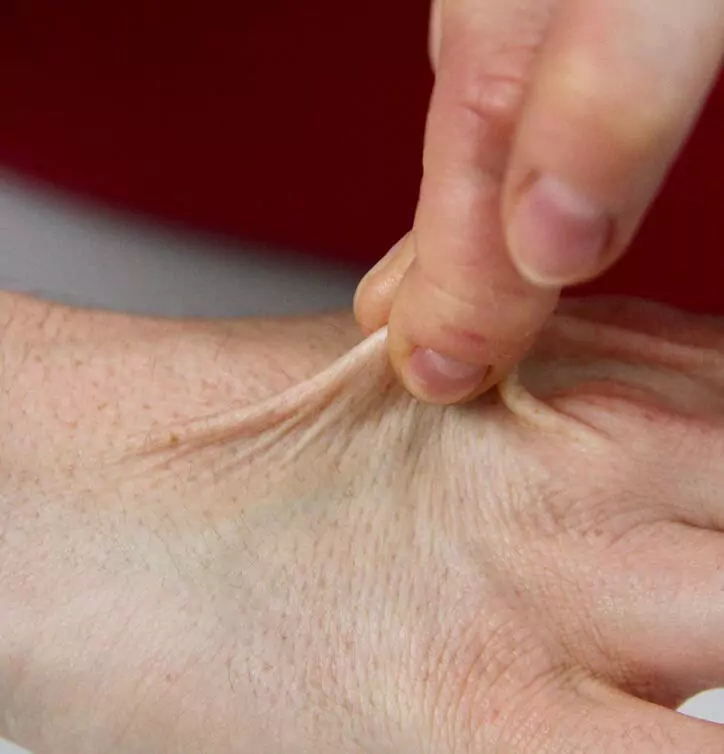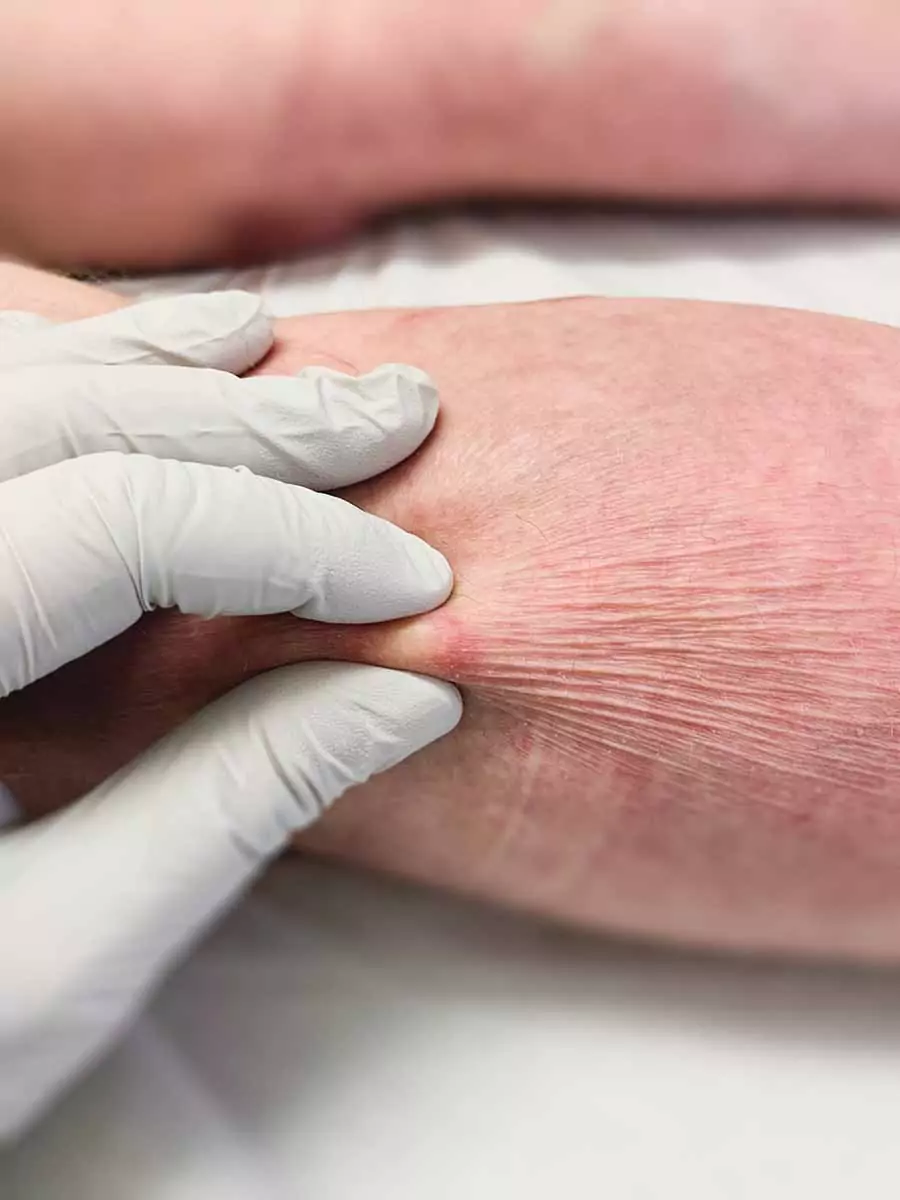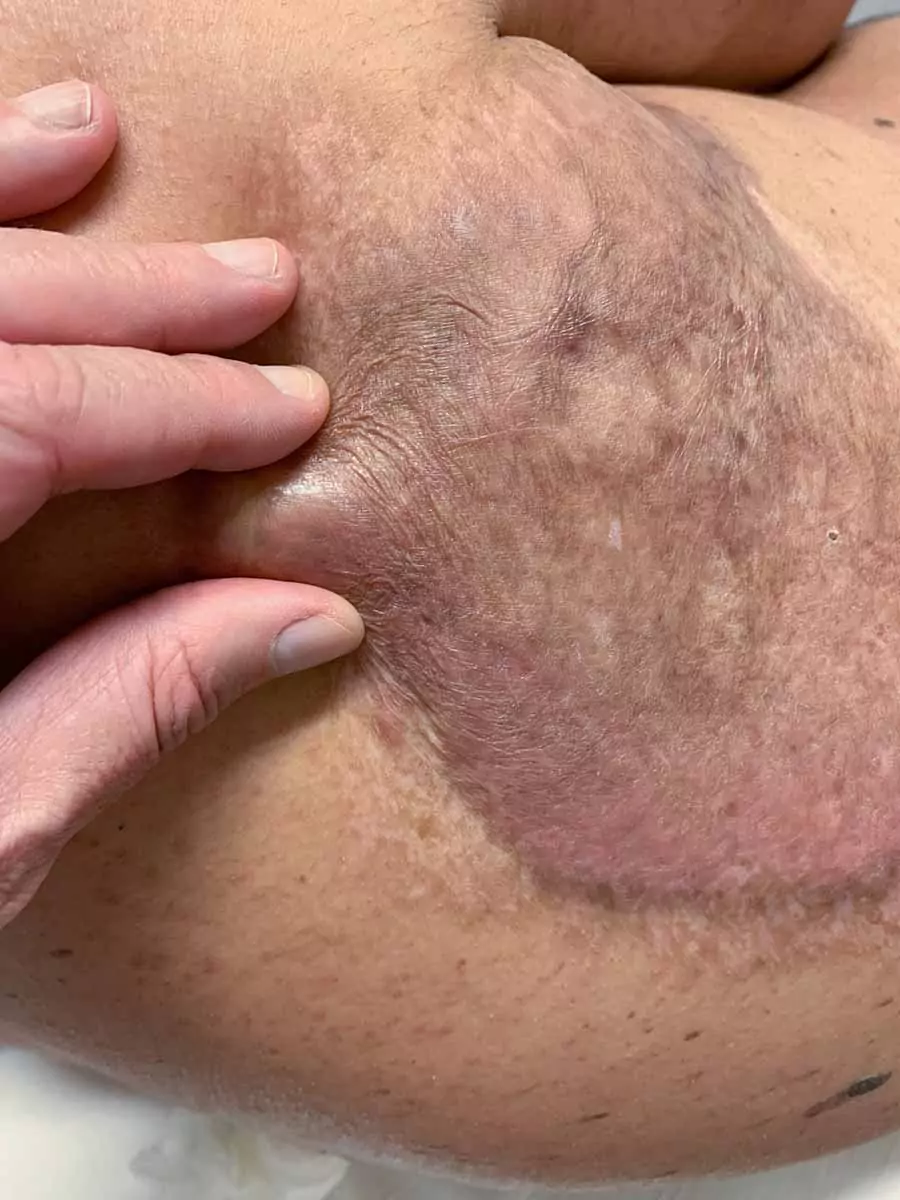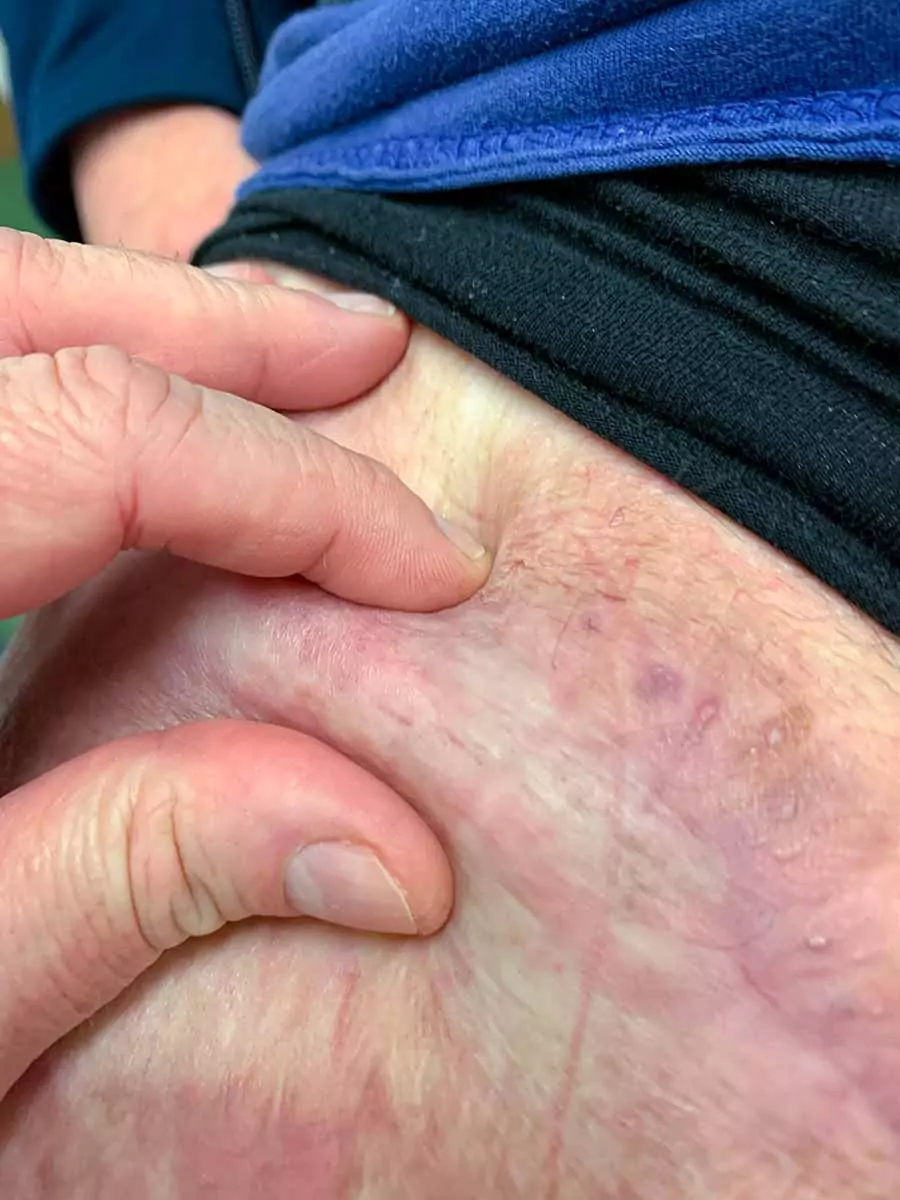Flexibility of Scars
Your skin needs to be able to move smoothly, especially around joints, so you can move normally.
However, scars are often stiffer than regular skin, which can make movement harder.
This is because scar tissue is thicker and less flexible than healthy skin.
When we talk about "flexibility," we mean how easily or poorly a scar can move along with the rest of your skin.
If a scar is very stiff, it can make joint movement harder, cause pain, or make everything feel tight and restricted.





















